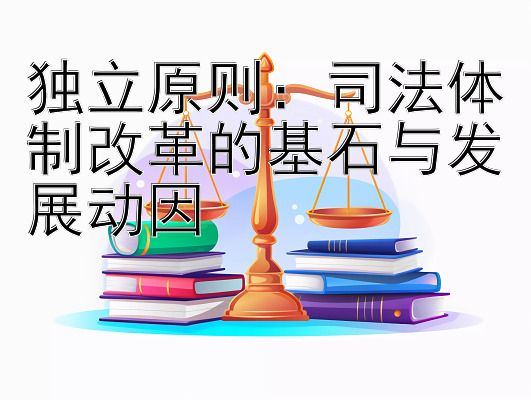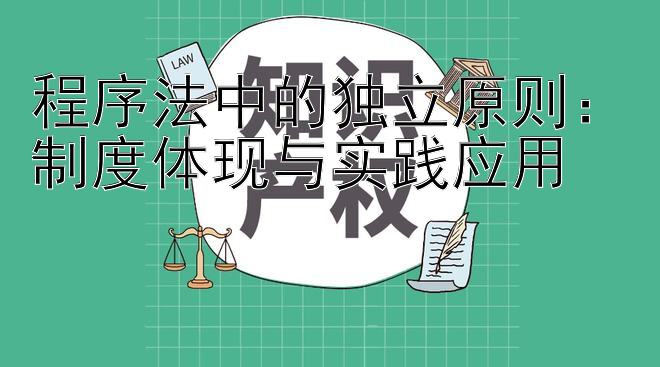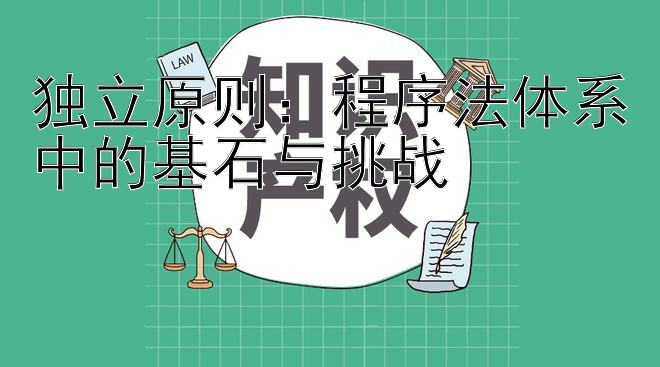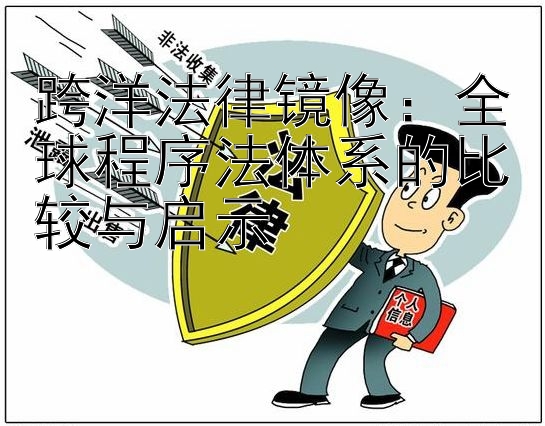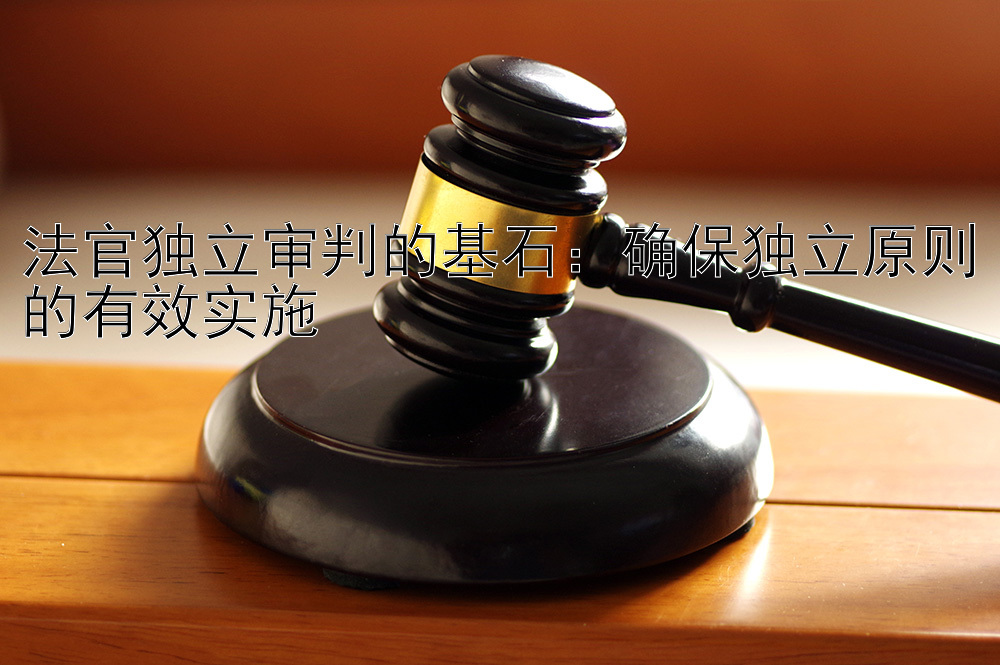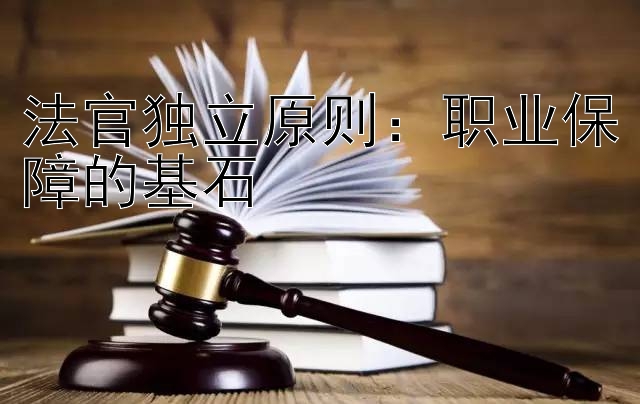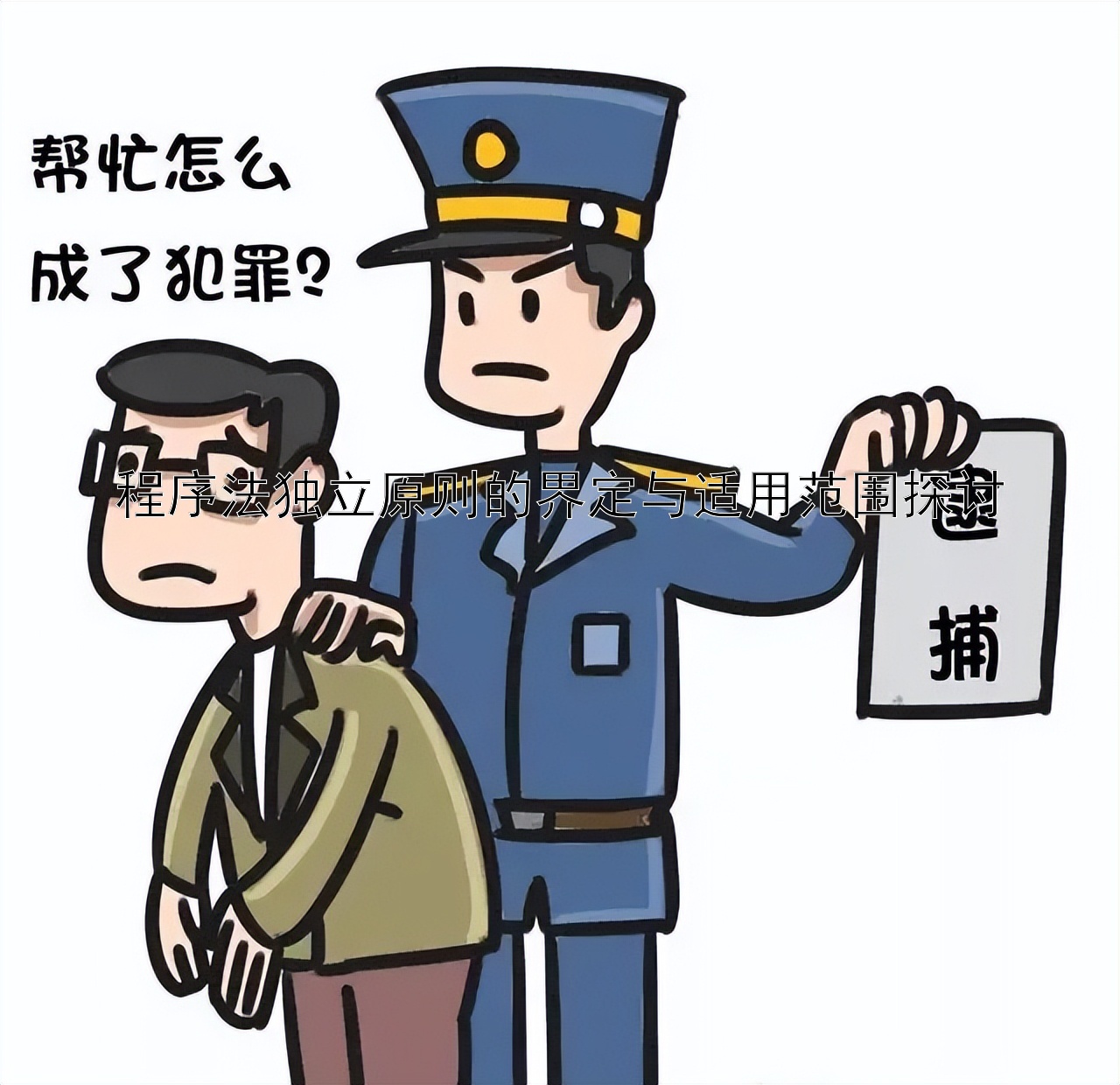独立原则:程序法体系的基石与挑战
在现代法治社会中,“独立”是司法体系的核心价值之一。它不仅体现在法官的审判活动中,更渗透到整个诉讼程序的设计和执行过程中。作为保障公正、防止权力滥用的重要机制,独立原则被视为程序法体系的基石。然而,随着社会的不断发展和法律的日益复杂化,这一原则也面临着一系列新的挑战。本文将从以下几个方面探讨独立原则及其面临的挑战: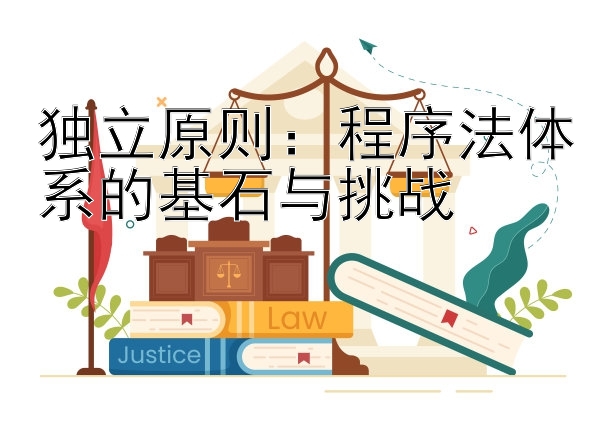
一、独立原则的内涵及意义
-
法官独立:这是最广为人知的层面,强调法官在审理案件时应不受任何外部压力或干扰,以保证判决的客观性和公正性。例如,我国《宪法》规定了人民法院依法独立行使审判权的原则。
-
律师独立:律师应当保持其执业活动的独立性,不受当事人或其他利益关系的影响,确保其在代理或辩护过程中的意见自由表达。
-
检察官独立:虽然检察官代表国家提起公诉,但其同样需要遵循独立的职业道德准则,以确保起诉行为的合法性与公正性。
-
法院系统整体独立:这包括各级法院之间的独立以及法院与其他政府部门之间的独立,旨在避免行政权力对司法权的干涉。
-
诉讼参与人的独立:包括证人、鉴定人在内的所有诉讼参与者都应在庭审中独立地提供证据和发表意见。
二、独立原则面临的挑战
-
政治干预:在一些国家和地区,政府或政党可能通过立法、预算控制等方式影响法院的决策和运作,损害司法独立。例如,某国政府试图通过对法院施加财政压力来实现政策目标。
-
经济因素:随着商业纠纷增多,企业可能会利用经济手段(如资助 | 06/27/2023
In a modern society governed by the rule of law, "independence" is one of the core values in judicial systems. It not only manifests itself in judges' adjudicatory activities but also permeates into the design and execution processes of entire litigation procedures. As an important mechanism to ensure justice and prevent abuse of power, independence principle serves as the cornerstone of procedural law system. However, with the continuous development of society and increasing complexity of laws, this principle faces new challenges. This article will explore from several aspects the independence principle and its challenges:
I. The Concept and Significance of Independence Principle
-
Judicial Independence: This refers to ensuring that judges can freely decide cases without any external pressure or interference, thus guaranteeing objectivity and fairness of judgments. For example, the Constitution of China stipulates the principle of independent exercise of judicial powers by courts according to law.
-
Attorney Independence: Attorneys should maintain their professional independence during practice so they are free from influence of clients or other interests to ensure freedom of expression for opinions when representing or defending clients.
-
Prosecutorial Independence: Although prosecutors represent the state in prosecutions, they too must adhere to independent ethical standards to ensure legality and impartiality of prosecutorial actions.
-
Overall Independence of Court Systems: This includes independence between different levels within court hierarchy as well as separation between courts and other government departments aimed at avoiding administrative influences on judiciary functions.
-
Independence of Litigants: Including witnesses, experts, etc. all participants involved in litigation process should be able to provide evidence independently and express opinions freely during trials.
II. Challenges Facing Independence Principle
- Political Interference: In some countries and regions, governments or political parties may use legislative measures, budgetary controls, among others means to influence decisions made by courts thereby undermining judicial independence. For instance, certain governments might try exerting financial pressures upon courts via legislation targeting policy objectives.
